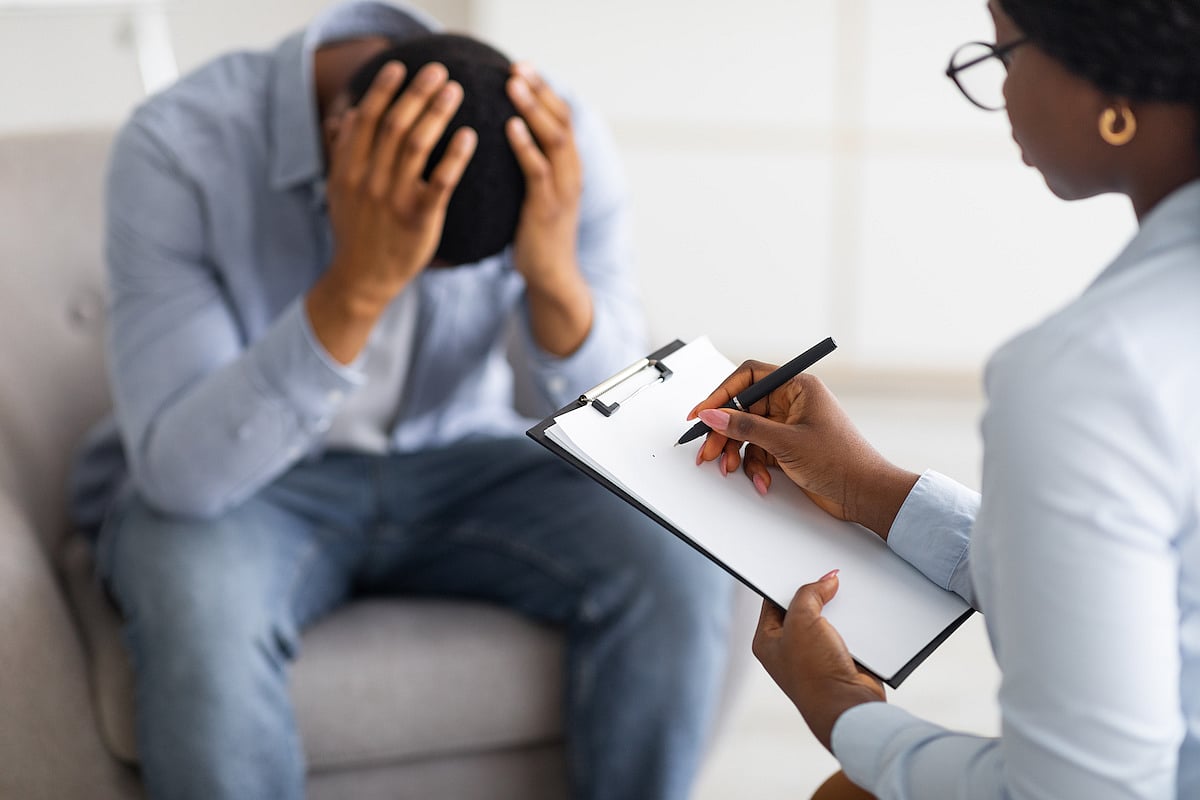Due to a recent change in our pharmacy software system, the process for submitting refill requests online has now changed.
Our previous mobile app and your current login credentials will no longer work.
Please click the Patient Portal tab to begin the new process.
Thank you for your patience during this transition.
Get Healthy!

- Ernie Mundell
- Posted November 7, 2024
Rates of Anxiety, Depression Rising Among Americans, Especially the Young
Rates of anxiety and depression among U.S. adults, especially younger folks, continues to rise, the latest federal data shows.
Nearly 1 in every 5 (18.2%) adults reported anxiety issues in 2022, up from 15.6% in 2019, reported Emily Terlizzi and Benjamin Zablotsky, researchers at the U.S. Centers for Disease Control and Prevention.
As for depression, rates among adults rose from 18.5% to 21.4% during the same time period, the new survey found.
Young adults were the most affected: More than a quarter (26.6%) of people ages 18 through 29 said they'd struggled with anxiety symptoms over the prior two weeks, compared to about 21% of those aged 30 to 44, just under 16% for those aged 45 to 64, and 11.2% among people 65 or older.
For nearly 10% of young adults, their anxiety was rated as moderate or severe, the researchers noted.
Age-related trends were similar for depression: nearly 27% of young adults surveyed said they'd felt depressed at some point over the past two weeks, with rates dropping off with increasing age. The rate among seniors, for example, was 18.6%.
For almost 10% of young adults, depression symptoms were rated as moderate or severe.
None of these statistics will come as a surprise to health experts. In 2021, U.S. Surgeon General Dr. Vivek Murthy issued a report outlining a "crisis" in mental health among American youth.
“Young people are bombarded with messages through the media and popular culture that erode their sense of self-worth -- telling them they are not good-looking enough, popular enough, smart enough or rich enough,” Murthy wrote in the report. “That comes as progress on legitimate, and distressing, issues like climate change, income inequality, racial injustice, the opioid epidemic and gun violence feels too slow.”
The new CDC data was based on responses to the 2022 National Health Interview Survey.
In other findings, rates of anxiety and depression rose as incomes and education fell, the survey showed. For example, while 13.4% of people in the highest income bracket said they'd felt anxious over the prior two weeks, that was true for 28.4% in the lowest income bracket.
As Terlizzi and Zablotsky note, mental health troubles affect more than just the mind.
"Mental and physical health are strongly linked, as adults diagnosed with mental health conditions are more likely to have physical health issues, as well as decreased health-related quality of life," they wrote.
The findings were published Nov. 7 in National Health Statistics Reports: Symptoms of Anxiety and Depression Among Adults: United States, 2019 and 2022.
More information
Find out more about battling anxiety, head to the Mayo Clinic.
SOURCE: National Health Statistics Reports: Symptoms of Anxiety and Depression Among Adults: United States, 2019 and 2022, Nov. 7, 2024
